How Tutors and Coaches Help Neurodiverse Individuals Find Their Place in the Job Market
At asperIT, we have observed for years that technical knowledge alone is not enough. People on the autism spectrum or with ADHD need something more – someone who understands how they function and helps them navigate the often complex world of work. That’s why we created a support system based on two key roles: tutor and coach.
Tutor – Your Guide to the Working World
Jacek Śmigiel, one of our tutors, often says that his work is a bit like being a translator between two worlds. On one side, we have a neurodiverse person with their unique needs, and on the other – an employer who wants to hire but doesn’t always know how.
What does a tutor do on a daily basis?
Assists with recruitment – moderates job interviews so candidates can showcase their true skills while recruiters better understand their potential.
Conducts social skills training – teaches how to read the unwritten rules of the office, how to communicate with colleagues, and how to cope with stress in a new workplace.
Creates accommodation cards – practical documents for employers that describe how to best collaborate with a specific person. These may include information about preferred communication styles or the need for a quieter workspace.
Provides crisis support – when problems arise (and sometimes they do), the tutor helps resolve them before they grow into bigger issues.
Educates teams – conducts workshops for managers and coworkers, building understanding that diversity is a strength, not an obstacle.
Coach – Your Development Partner
Grzegorz Korzeniowski and Ashwini Rao are our coaches who look beyond just the first day at work. Their role is to accompany long-term development – for both neurotypical and neuroatypical individuals.
Coaching at asperIT includes:
Discovering strengths – helping people understand their potential and consciously plan their careers.
Working on specific skills – whether it’s better time management, stress management, or building self-confidence.
Long-term support – we often continue collaboration long after formal training ends, because development is a process, not a one-time event.
Why Does This Work?
The combination of a tutor (who helps “here and now”) with a coach (who thinks about the future) provides something you won’t find in traditional employment activation programs. It’s a response to the real needs of neurodiverse individuals, who often have fantastic technical skills but need support in navigating the complex world of professional relationships.
The result? Our participants don’t just find jobs – they maintain them and develop their careers in environments that appreciate their unique talents.

